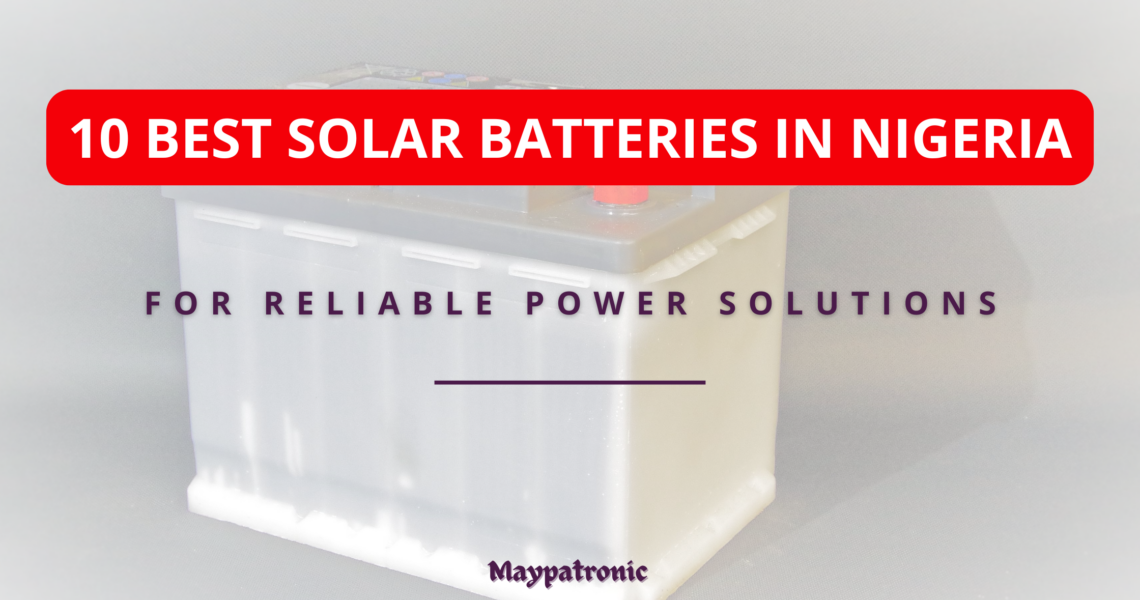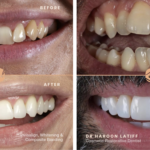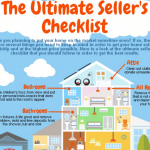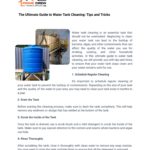Affordable Solar Batteries in Nigeria: How to Choose the Best One for Your Needs
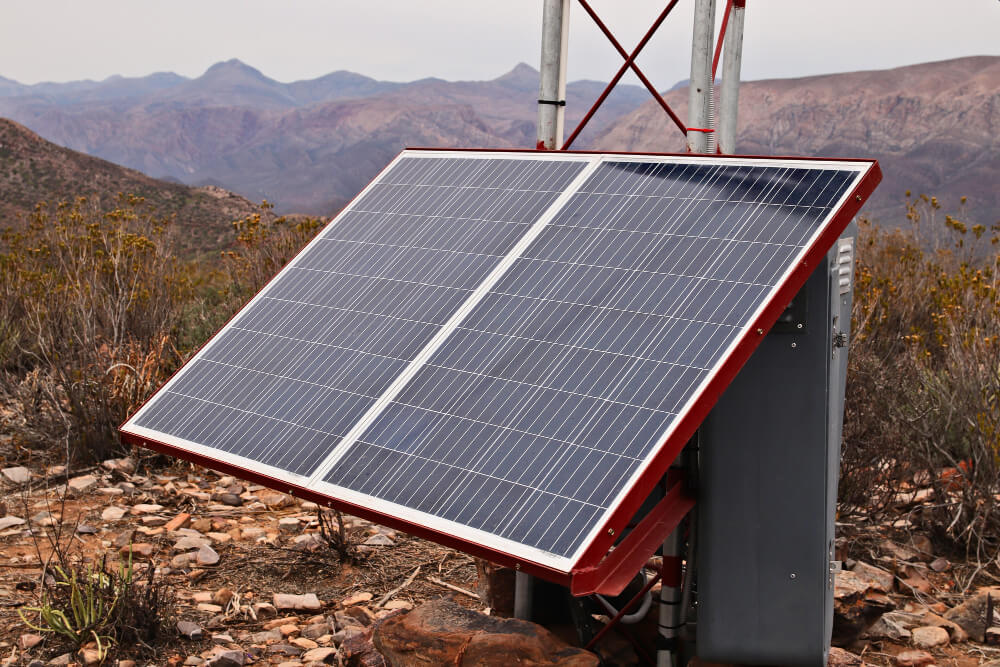
With Nigeria’s electricity supply being as unreliable as ever, many people are turning to solar energy as a way to keep the lights on.
But while solar panels are a great start, they can’t store power for use when the sun isn’t shining—that’s where solar batteries come in.
The challenge? Finding an affordable solar battery that’s reliable, durable, and worth the investment.
Many Nigerians worry about battery lifespan, cost, and maintenance, not to mention the risk of buying a fake product.
With so many options on the market, how do you know which one is right for your home or business?
This guide will break down everything you need to know about affordable solar batteries in Nigeria—from the different types available to the best brands and where to buy genuine products.
We’ll keep things simple and practical, so by the end, you’ll have all the information you need to make a smart purchase without getting lost in technical jargon.
Let’s get started!
Why Are Nigerians Looking for Affordable Solar Batteries?
Nigeria’s electricity supply is unpredictable, and diesel generators are expensive to run. That’s why more people are turning to solar energy.
However, while installing solar panels is a great step, a reliable solar battery is what ensures you have power when the sun isn’t shining.
But here’s the challenge: how do you find an affordable solar battery that meets your energy needs without draining your savings?
Common Concerns When Buying a Solar Battery
When shopping for a solar battery, here are the most common questions Nigerians ask:
How long will it last?
No one wants to replace their battery every year. A good solar battery should last at least 5–10 years with proper care.
How much does it cost?
Prices vary widely, but you can find reliable options at different price points. Investing in a quality battery can save you money in the long run.
Is it powerful enough for my needs?
Your energy consumption determines the battery capacity you should go for. Understanding battery capacity (Ah) and voltage (V) can help you make the right choice.
Is it easy to maintain?
Some batteries require regular maintenance (like checking water levels), while others are maintenance-free.
Where can I buy a genuine solar battery?
The market is full of fake products. It’s crucial to buy from trusted suppliers and brands.
Understanding Solar Battery Types
Not all solar batteries are the same.
Here are the four most common types available in Nigeria:
Lead-Acid Batteries (Most Affordable Option)
- Pros: Low cost, widely available.
- Cons: Requires regular maintenance, shorter lifespan (3–5 years).
- Best For: Budget-conscious buyers looking for a basic power backup solution.
Lithium-Ion Batteries (Best Long-Term Investment)
- Pros: Long lifespan (10+ years), faster charging, maintenance-free.
- Cons: Higher initial cost.
- Best For: Those who want long-term value and reliability.
Gel Batteries (Balanced Choice)
- Pros: Spill-proof, low maintenance, decent lifespan (5–7 years).
- Cons: More expensive than lead-acid but cheaper than lithium-ion.
- Best For: Homeowners who want a reliable battery without frequent maintenance.
AGM Batteries (Reliable for Homes)
- Pros: No maintenance required, good performance, spill-proof.
- Cons: More expensive than traditional lead-acid.
- Best For: Those looking for durability with minimal maintenance.
Top Affordable Solar Batteries in Nigeria
Here are some of the best options available at reasonable prices:
Felicity Solar Battery
- Type: AGM/Gel
- Pros: Affordable, widely available, decent lifespan.
- Cons: May not be as long-lasting as lithium-ion.
Luminous Tubular Battery
- Type: Lead-Acid
- Pros: Good for home use, relatively low-cost.
- Cons: Requires maintenance.
Blue Nova Lithium-Ion Battery
- Type: Lithium-Ion
- Pros: Long lifespan, high efficiency.
- Cons: Higher upfront cost.
Ritar AGM Battery
- Type: AGM
- Pros: Good performance, low maintenance.
- Cons: Not as cheap as lead-acid options.
Tip: Always check for a warranty before purchasing a solar battery. A good battery should come with at least a 2–5 year warranty.
Where to Buy Affordable Solar Batteries in Nigeria
Finding a genuine supplier is key.
Here are some options:
- Local Solar Shops: Visit reputable dealers in cities like Lagos, Abuja, and Port Harcourt.
- Online Platforms: Websites like Jumia, Konga, and SolarKobo offer various options.
- Direct from Distributors: Buying directly from manufacturers or certified distributors can be more affordable.
How to Maximize Your Solar Battery’s Lifespan
Want your battery to last longer? Follow these best practices:
- Avoid Deep Discharges: Don’t drain your battery completely before recharging.
- Keep It Cool: Excess heat can shorten battery life. Install it in a well-ventilated area.
- Regular Maintenance: If using a lead-acid battery, check water levels and clean terminals.
- Use a High-Quality Inverter: A poor inverter can reduce battery efficiency.
Is a Solar Battery Right for You?
A solar battery is a great investment, but it’s not for everyone.
Here’s when it makes sense:
- If you experience frequent power outages.
- If you want to reduce your reliance on the grid.
- If you’re already using solar panels and need better power storage.
However, if you only need occasional backup power, a small generator or inverter system might be a more affordable alternative.
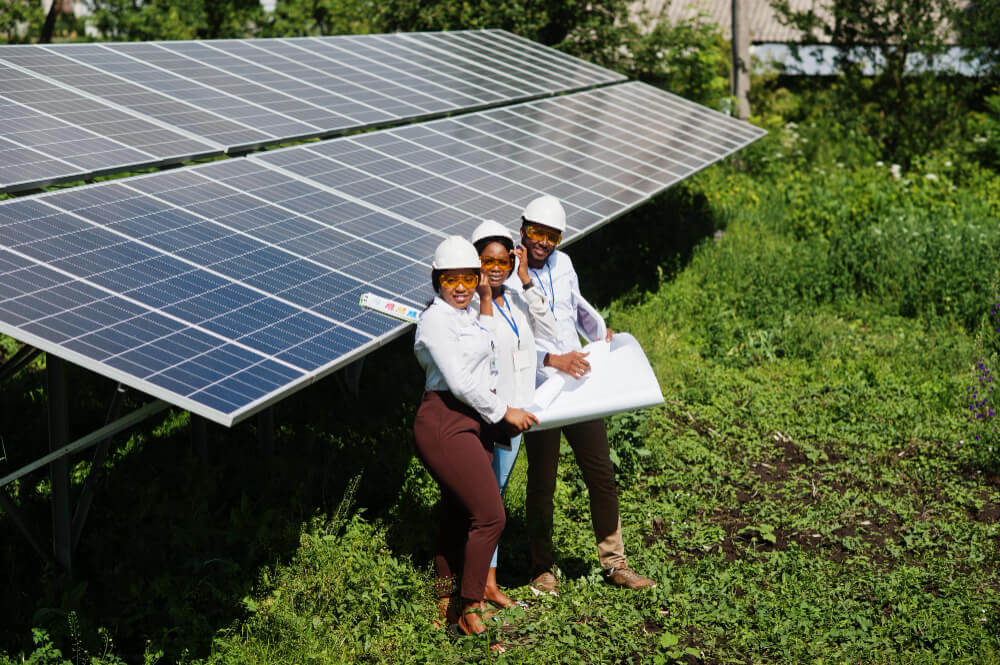
Frequently Asked Questions
How much does an affordable solar battery cost in Nigeria?
- Prices range from ₦50,000 to ₦500,000, depending on the type and capacity.
How long do solar batteries last?
- Lead-acid: 3–5 years
- Lithium-ion: 10+ years
- Gel & AGM: 5–7 years
Can I use a solar battery without solar panels?
- Yes! You can charge a solar battery with electricity from the grid and use it as backup power.
What is the best solar battery for Nigerian homes?
- For affordability: Felicity Solar Battery or Luminous Tubular Battery.
- For durability: Blue Nova Lithium-Ion Battery.
How do I know if my battery is fake?
- Buy from reputable dealers, check for brand authenticity, and avoid suspiciously cheap options.
Conclusion
Investing in a solar battery is a smart and sustainable way to tackle Nigeria’s unreliable power supply. Whether you’re looking for an affordable lead-acid battery or a long-lasting lithium-ion option, there are choices available to fit your needs and budget.
By understanding the different types of batteries, what to look for when buying, and how to properly maintain your system, you can make an informed decision that will keep your home or business powered, no matter the weather or power outages.
Remember, while cost is a big factor, it’s important to consider battery lifespan, performance, and maintenance needs before making your final choice.
Make sure to buy from trusted suppliers to avoid counterfeit products and always check for warranties to ensure you’re getting a genuine product.
In the end, switching to solar energy, especially with the right battery, can save you money in the long run and provide a reliable power source that will improve your quality of life. If you’re wondering where to buy affordable solar batteries in Nigeria, you can check out trusted suppliers to find genuine products that suit your needs.
Ready to make the switch? Whether you’re starting small with a lead-acid battery or going big with a lithium-ion setup, you’re one step closer to taking control of your energy future.
